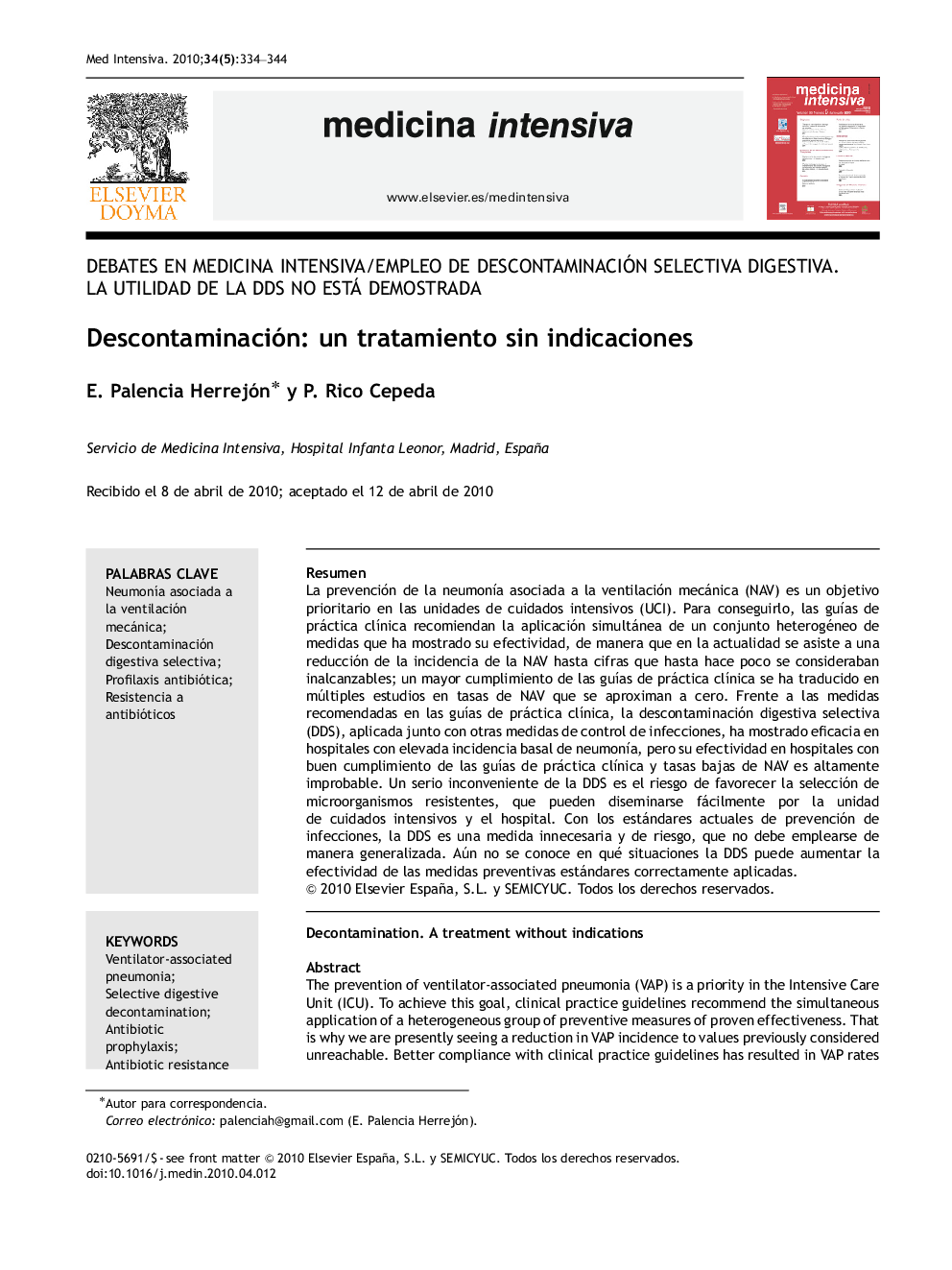| Article ID | Journal | Published Year | Pages | File Type |
|---|---|---|---|---|
| 3113518 | Medicina Intensiva | 2010 | 11 Pages |
Abstract
The prevention of ventilator-associated pneumonia (VAP) is a priority in the Intensive Care Unit (ICU). To achieve this goal, clinical practice guidelines recommend the simultaneous application of a heterogeneous group of preventive measures of proven effectiveness. That is why we are presently seeing a reduction in VAP incidence to values previously considered unreachable. Better compliance with clinical practice guidelines has resulted in VAP rates approaching zero in multiple studies. Faced with the measures recommended in these guidelines, selective digestive decontamination (SDD), used together with other infection control practices, has shown efficacy in hospitals with high baseline incidence of pneumonia. However, its effectiveness in hospitals with good compliance of clinical practice guidelines and lower rates of VAP is highly unlikely. A serious drawback of DDS is the risk of favoring the selection of resistant microorganisms that can spread easily through the ICU and the hospital. With current standards of infection prevention, DDS is an unnecessary and risky measure, which should not be used on a widespread basis. Those situations in which the DDS may increase the effectiveness of properly implemented standard measures are still unknown.
Keywords
Related Topics
Health Sciences
Medicine and Dentistry
Critical Care and Intensive Care Medicine
Authors
E. Palencia Herrejón, P. Rico Cepeda,
